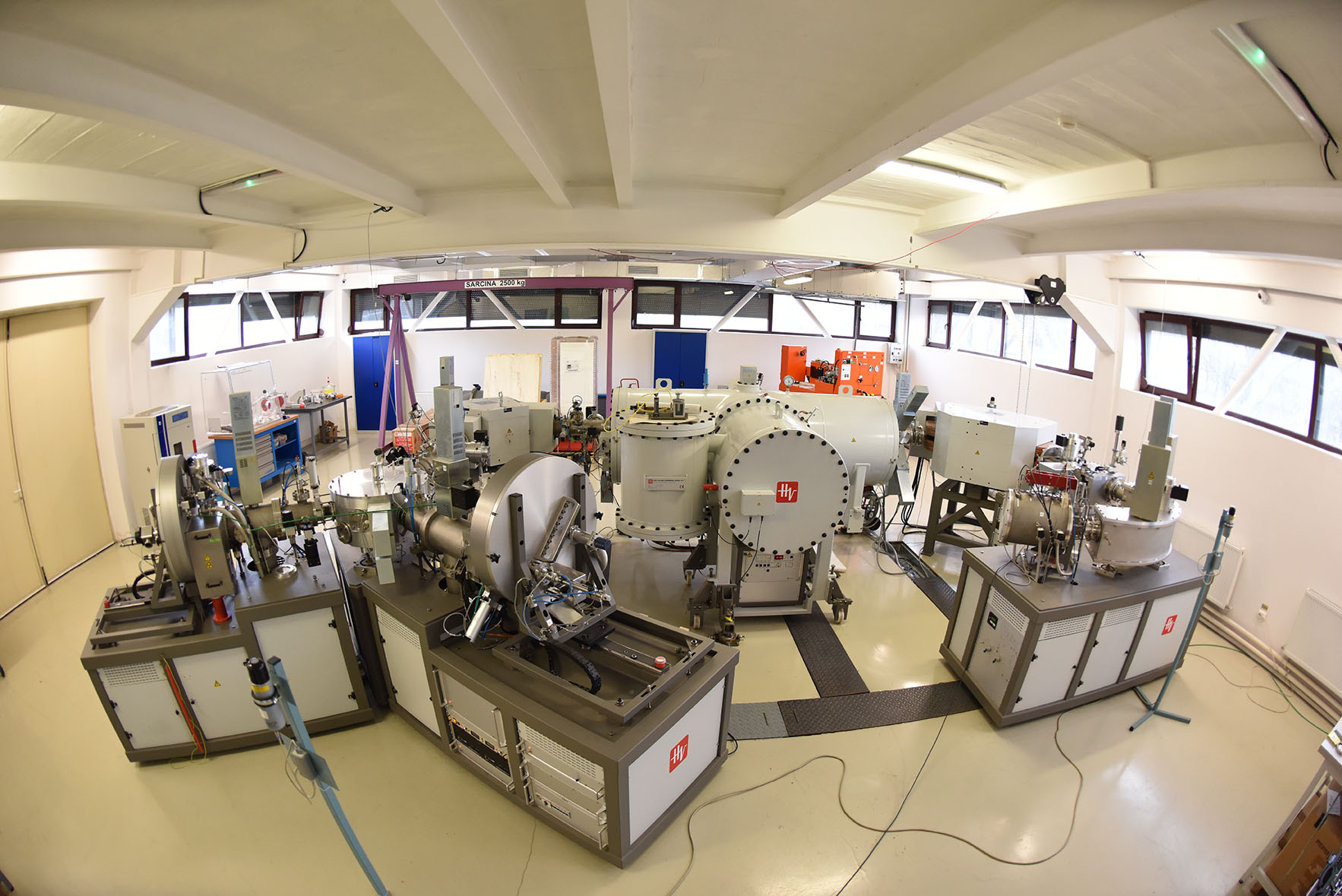
1-MV Tandetron - Accelerator Mass Spectrometry
Accelerator Mass Spectrometry (AMS) is today's most sensitive isotopic analysis method known. Using a particle accelerator, usually a Tandem type, the AMS spectrometer measures one by one the ions of the investigated species. This method uses a Tandem type accelerator due to its ability to break the molecules having the same mass as the analysed atom and thus remove the unwanted molecular interference from the measurement.
The AMS sensitivity can reach 10-15 scarce isotope / abundant isotope, in other words, AMS allows determination of the existence of a single atom in a torrent of one million billion other foreign atoms. So, AMS is an analytical technique for measuring low levels of long-lived radionuclides and rare trace elements. Due to its exceptional sensitivity, this method has opened a very wide range of applications in various fields: medicine, archaeology, palaeogeomorphology, geology, atmospheric physics, paleoclimatology, astrophysics, nuclear physics, nuclear pollution tracking, etc.
- AMS sensitivity can reach 10-15 scarce isotope / abundant isotope
- Applications using the following isotopes: 10Be, 14C, 26Al, 41Ca, 129I
- Measurements of 2H and 3H are performed routinely at the AMS facility
- Specialized chemistry laboratory for samples preparation
© Copyright 2021. All Rights Reserved. Horia Hulubei National Institute for R&D in Physics and Nuclear Engineering (IFIN-HH)
